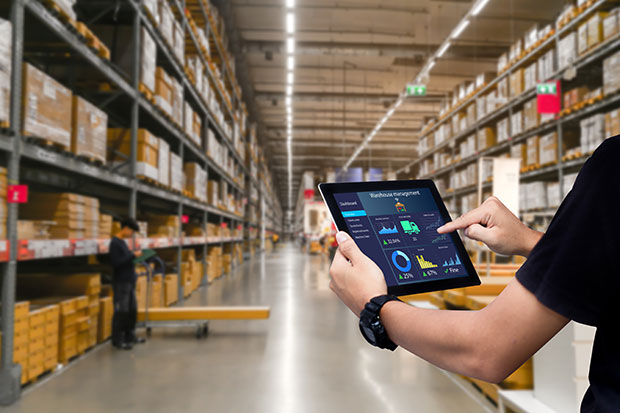In the fast-paced world of warehousing, sustainability is emerging as a key priority for businesses looking to reduce their environmental footprint while improving efficiency and safety. While grand initiatives like installing solar panels or implementing robotics and AI are commendable, there are smaller, more manageable steps that warehouses can take to reduce their ecological footprint. These steps not only contribute to a greener planet but also often result in cost savings and improved efficiency. Here are five such steps that any warehouse can implement:
 1. Optimise Energy Consumption
1. Optimise Energy Consumption
One of the simplest yet most effective ways to enhance sustainability in the warehouse is by optimising energy consumption. Start by conducting an energy audit to identify areas of inefficiency. Switching to energy-efficient lighting such as LED bulbs, installing motion sensors to control lighting, and ensuring equipment is powered down when not in use can significantly reduce energy consumption without requiring substantial investment.
2. Implement Waste Reduction Measures
Waste management is another area where warehouses can make significant strides towards sustainability. Implementing a waste reduction strategy that focuses on recycling, composting, and minimising single-use plastics can drastically reduce the amount of waste sent to landfills. Encouraging employees to use reusable containers for lunches and providing recycling bins throughout the facility are simple yet effective measures.
3. Invest in Proper Equipment Maintenance
Maintaining work equipment in good working order is not only crucial for operational efficiency but also for sustainability. Regular maintenance ensures that equipment operates at peak performance, minimising energy consumption and reducing the likelihood of breakdowns. By extending the lifespan of machinery and equipment, warehouses can decrease the need for frequent replacements, ultimately reducing waste and conserving resources.
4. Optimise Inventory Management
Effective inventory management not only improves efficiency but also contributes to sustainability efforts. By optimising inventory levels and implementing just-in-time inventory practices, warehouses can minimise excess stock and reduce the need for storage space and transportation. This not only reduces waste but also lowers energy consumption associated with storage and transportation activities.
5. Promote Sustainable Transportation Practices
Transportation is a significant contributor to carbon emissions in the supply chain. Warehouses can reduce their environmental impact by promoting sustainable transportation practices such as consolidating shipments, optimising delivery routes, and using fuel-efficient vehicles. Additionally, investing in alternative fuel options or electric vehicles for transportation within the warehouse premises can further reduce emissions.
Rack Group: Your Partner in Sustainable Warehousing
When it comes to maintaining work equipment in optimal condition, Rack Group stands out as a leading specialist in supplying and maintaining racking equipment. With a focus on sustainability and longevity, Rack Group offers comprehensive services including installation, inspection, and repair of racking systems. Their team of experts not only ensures that your racking equipment is safe and efficient but also provides specialist training for your teams to inspect and repair racking in-house. By partnering with Rack Group, warehouses can take proactive steps towards sustainability while maximising the lifespan of their equipment and reducing repair bills in the long term.
In conclusion, sustainability in the warehouse is not solely about implementing large-scale initiatives but also about embracing small, manageable steps that collectively make a significant impact. By optimising energy consumption, reducing waste, maintaining equipment, optimising inventory management, and promoting sustainable transportation practices, warehouses can become more environmentally friendly, efficient, and cost-effective in their operations. Find out more at: www.therackgroup.com.





Comments are closed.